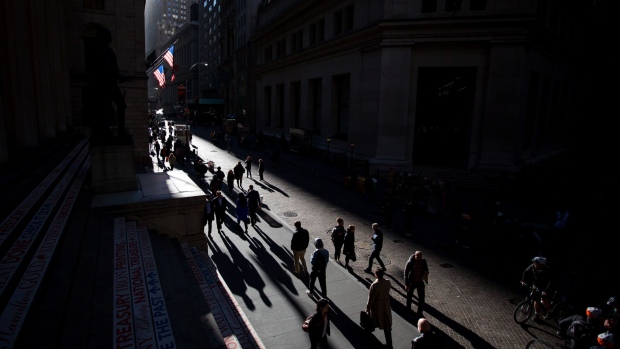Mar 5, 2024
Moody’s Says Private Credit Returns Will Be Pressured by Banks
, Bloomberg News

(Bloomberg) -- Private credit’s “golden era” may face strain amid a resurgence in the broadly syndicated loan market, as increased competition drives down returns, according to a report from Moody’s Investors Service.
As banks compete harder to win big deals, recent private credit loans have priced at some of the tightest spreads on record, according to data compiled by Bloomberg. Last month, a $3.3 billion private credit loan for UK insurance broker Ardonagh Group Ltd. came in at 475 basis points over a US reference rate, and Blackstone Inc. recently sought a $250 million loan with similar pricing to finance its planned purchase of Rover Group.
In Europe, private lenders offered Iris Software a loan at 5 percentage points over the UK benchmark — 75 basis points inside Adevinta’s record loan in November, which was considered among the tightest pricing at the time.
Read more: Private Credit Cuts Pricing to Fend Off Wall Street Deal Grab
“As rate hikes level and competition escalates, this will put pressure on private credit returns, including the generous illiquidity premiums that direct lenders wield over syndicated lenders in public markets. All of this will drive greater convergence in terms and pricing between banks and nonbanks,” analysts led by Christina Padgett wrote in the report.
A recent slew of private deals that have been refinanced into the public markets suggest a hunger among borrowers for interest savings, the analysts wrote. Many companies can save 200 to 300 basis points when opting for public debt over a direct loan, Moody’s found. So far this year, 21 companies have issued a broadly syndicated loan to refinance $8.3 billion of debt that was previously provided by direct lenders, according to PitchBook LCD data.
This expanding capital ecosystem will continue drawing greater scrutiny — and potential regulation, the report said. It cited examples including the National Association of Insurance Commissioners’ examination into whether insurance companies must hold a higher level of capital for private credit to compensate for risk. And in February, the Federal Reserve published a report detailing the potential risks of concentrating so much dry powder among just a few fund managers.
©2024 Bloomberg L.P.





